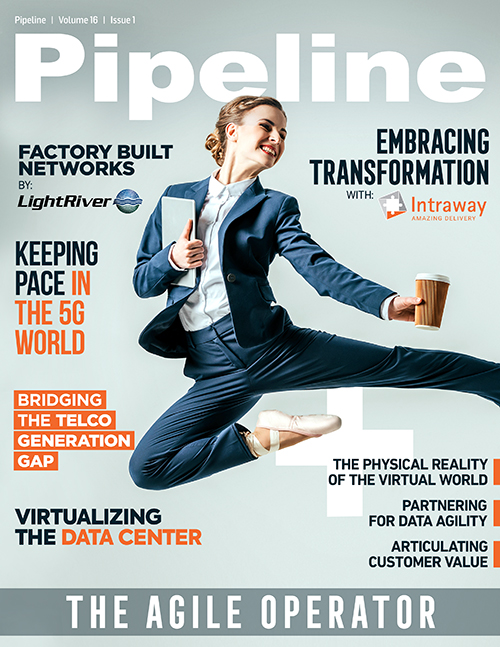Letter from the Editor

In the April, 2nd 1965 issue of Time magazine titled "The
Computer in Society," author and economist Joseph Froomkin presupposed that, based upon the advent and
adoption of the computer, "automation will eventually bring about a 20-hour work week." The article went on to surmise that that automation would lead to the creation of "a mass leisure class" which would then
lead to several foreboding economic and social impacts, including two-percent employment and "non-functional lives," creating "a severe test of the deeply ingrained ethic that work is the good
and necessary calling of man." And he wasn't wrong. Well, not entirely.
At least at the time, technology was anticipated to make life better. More leisure and less work—sign me up. Froomkin's predictions, however, which were projected to occur within 100
years, didn't take into account what would happen between the time of the article and the actual fruition of automation technology. As in, now.
Ten years prior to Time's poignant position on the adoption of automation technology, the UK political analyst and historian Cyril Northcote Parkinson coined what is now known as
Parkinson's Law. Had Froomkin and Parkinson been
better acquainted, he may have also foreseen that work would simply assume the newly available time as a means to justify itself.
Today, 54 years after the publication of the Time article, there is rarely a day that I am able to have time to eat lunch or even tend to the most basic of biological functions. And in
the time I find for either, I'm constantly connected, conducting calls over Skype, keeping up with social media, or checking news and email on my mobile device. I work 12-hour days, six days a
week. I literally can't recall the last time I took a vacation. Leisure, for me, is the time I get between tucking the kids into bed and collapsing into my own. And, I'm not alone. It would
seem that technology hasn't made life easier, but instead made it easier to work and for work to permeate virtually every aspect of life. Agile technology, however, may be about to change
that.
Since the Industrial Revolution, we have seen automation technology improve and transform businesses and entire industries. From the introduction of Eli Whitney's Cotton Gin (1793), Heinz's
electrical food factory (1901), Ford's assembly line (1913), the McDonald brothers' Speedee Service System (1948), or General Motor's introduction of industrial robotics for automobile
manufacturing (1961) — automation has proven to pay dividends and, perhaps, rushed its adoption.
From the Industrial Revolution to the Digital Era, the focus of automation has been to disrupt and transform business. But it wasn't until 2008 that the State of Utah instituted a four-day work week (which is gaining momentum even today) for government
workers, and 2010 when the New Economics Foundation asserted the wide-reaching social benefit of a 21-hour work week. Which really isn't all that bad when you consider we're just a little over halfway to Froomkin's future.
Over the next century, automation will continue to advance businesses and technology will continue to build the mass leisure class — just like it has for Amazon's Jeff Bezos, Apple's Steve
Jobs, Microsoft's Bill Gates, Telsa's Elon Musk, and Uber's Garrett Camp. In the not-so-distant future, your refrigerator will directly interface with Amazon's AI agent, which will locate
your product and place your order, and it will be delivered the same day by drone. That's practically less than a decade away from being a reality. It's not hard to imagine that in
50 years, AI will be able to autonomously create and run businesses on its own. Even at Pipeline today, we are implementing robotics process automation and artificial intelligence
technology to automatically create and distribute our content through our digital publishing platform, Pubspoke. But, I'm not really looking for mass leisure. I'm just hoping for a five-day,
40-hour work week and some semblance of normalcy.
In this issue of Pipeline, we look at how agility is unlocking potential across the industry. We take a special look at Intraway, and how it is helping its customers embrace transformation with automation. We hear from LightRiver, and see how
factory-built networks are speeding new network implementations.
ServerFarm takes us through the value of virtualizing data
center assets, The Independent Data Center Alliance shows us how they are turning challenges into new opportunities, and CNI shows us how to bridge the physical and digital divide, and FNT Software
shows us how to keep pace in a 5G world. We explore
ways to articulate customer value with Evolving Systems
and overcome the cultural generation gap with Dr. Mark Cummings.
We also take a look back at the month's top news stories and
much more.
Scott St. John
Managing Editor
Pipeline
We hope you enjoy this and every issue of Pipeline,
Scott St. John
Managing Editor
Pipeline



















